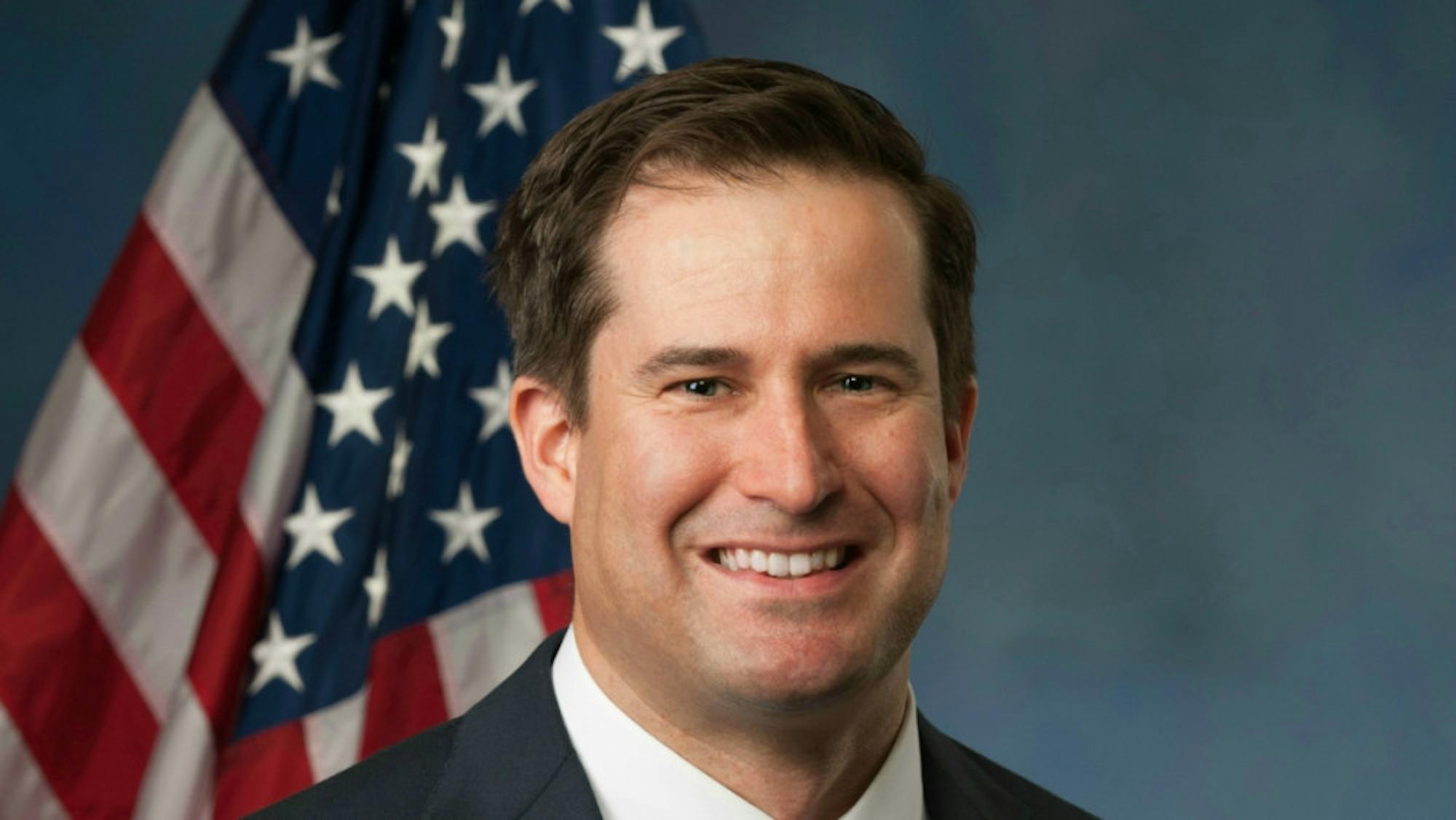Congressman Seth Moulton(D-Mass.), who represents the 6th district of Massachusetts, spoke at a roundtable discussion about the state of American politics in the Rabb Room last Monday afternoon.
The discussion was hosted by Tufts Cooperation and Innovation in Citizenship (CIVIC), Tufts Alliance Linking Leaders in Education and the Services (ALLIES) and the Jonathan M. Tisch College of Citizenship and Public Service.
Moulton spoke at the event about his background as a marine veteran, the problems of partisanship in Congress, American politicians' opinions of the Syrian refugee crisis and the need for more people from different backgrounds to run for public office.
Moulton said he earned a bachelor's degree from Harvard University, then signed up for the U.S. Marine Corps, to the chagrin of his liberal parents. He served four tours in the Iraq War and discovered his love for public service in the midst of a war he did not always support. Moulton said that, following his military service, he earned a master’s degree in business and public administration from Harvard.
The event was a roundtable discussion, so the congressman took several questions from students.
One student attending the event asked why Moultonran against incumbent Democratic Representative John Tierney in the 2014 congressional elections to win the seat that he now holds, a decision that was initially met with animosity from Democratic voters.
“There are a lot of people in Washington today who clearly put their party’s interest above the country’s interest,” he said. “That’s why I ran against a Democrat, even though every establishment Democrat was against me.”
Moulton cited his campaign’s use of social media and close attention to his constituents’ opinions as factors in his 2014 victory.
Another student pointed out the lack of women in attendance at the discussion and asked Moulton about his opinions on the climate for women in the Marines and in politics. Moulton responded by pointing out the lack of minorities at the discussion as well, suggesting that both groups should push themselves to become more involved in American politics.
“Political leadership is not very representative of the country as a whole, and that’s a problem,” he said.
Moulton touted his involvement with a bipartisan working group on Capitol Hill and a bill that he cosponsored with Congressman Dave Brat (R-VA), which aims to improve the transparency and accessibility of government decisions and regulations by making them readily available online.
The congressman also addressed the Syrian refugee crisis, characterizing Massachusetts Governor Charlie Baker’s announcement that the state would not accept Syrian refugees as a poor and immoral security decision.
“Kicking out refugees is going to send more of them to ISIS,” he said.
Another student at the event asked Moulton about his thoughts on the Democratic losses during last year’s senatorial election. Moulton explained that Democrats rely much more on seniority when determining who to select for different committees and positions, suggesting that a young man such as new Speaker of the House of Representatives Paul Ryan (R-WI) would not have been able to rise in the ranks the way he has if he were not a Republican.
“Democrats have a huge recruitment problem,” he said.
Moulton closed the discussion on an optimistic note, expressing his belief that the United States has not yet reached its prime, despite congressional gridlock.
“The U.S. government is the best political system the world has ever seen,” he said.
Congressman Moulton addresses political partisanship, future of politics in roundtable discussion

Congressman Seth Moulton (D-Mass.) spoke to a group of students in the Rabb Room on Monday, Nov. 23.





